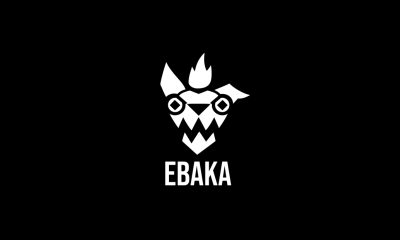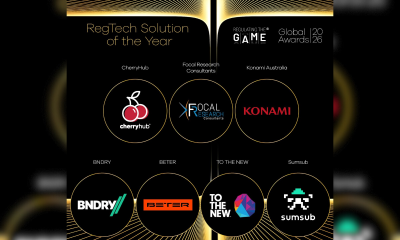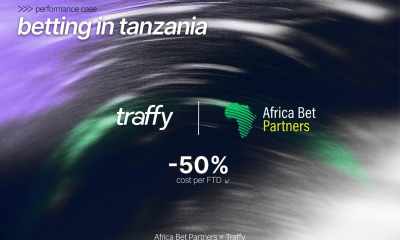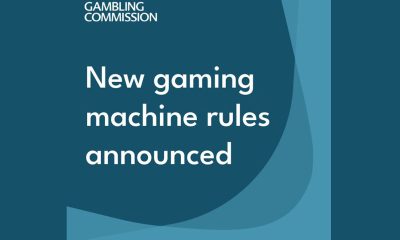Interviews
HIPTHER Community Voices: Interview with Dr. Maria Loumpourdi, founder and Managing Director of Made From Within
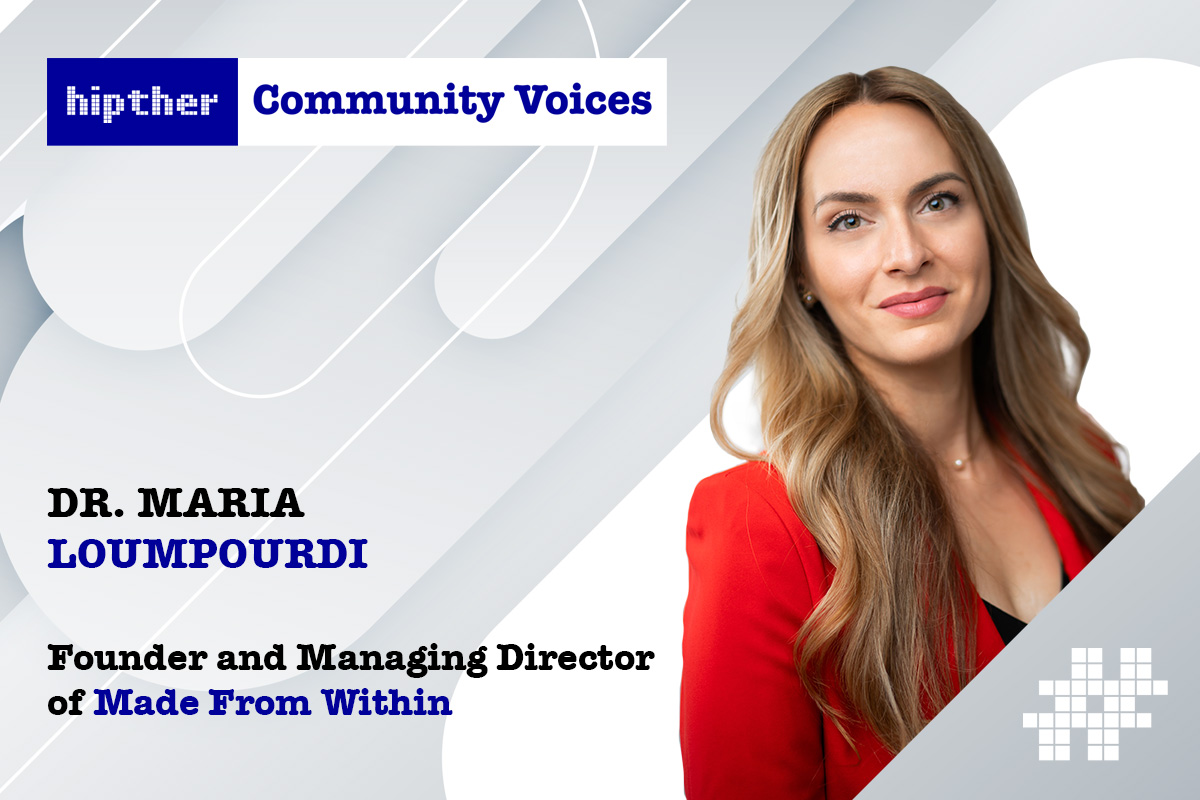
Reading Time: 7 minutes
In this interview, we speak with Dr. Maria Loumpourdi, founder and Managing Director of Made From Within, a CPD-accredited leadership development provider. She shares her journey into leadership and coaching, the philosophy behind her work, and how evidence-based development can drive real change—particularly in high-growth sectors like iGaming.
What originally sparked your interest in leadership development and coaching? Was there a defining moment that set you on this path?
The spark started very early. As a kid, I was always very curious and loved learning, but more than that, I loved sharing what I learned. I even remember trying to memorise a 24-volume encyclopaedia just so I could drop interesting facts into conversations. Looking back, that passion for learning and helping others grow was always there.
When it came time to choose a university path, education felt like the natural choice. I loved it (and still do), but I quickly started to feel uneasy about how rigid the school system is. More often than not, we teach what’s prescribed, not necessarily what kids want or need to learn. That made me think more seriously about adult education, where people have more agency in their development and are often more personally invested.
That decision led me to corporate learning and development. I started in the Learning & Development department of an iGaming company, and within a year, I moved into a leadership role heading L&D in the manufacturing sector. That role gave me hands-on experience in managing teams and developing as a leader myself. By that time, I had already completed a master’s in educational leadership and had been accepted into a doctoral programme. At that point, I already knew my research would focus on leadership development.
Another key realisation came when I started developing leaders. I began to see that while training is a necessary first step, it cannot, on its own, lead to lasting behavioural change. That’s when I realised coaching was the missing piece; it’s what helps people truly internalise and apply what they’ve learned. I became an accredited coach and eventually a coaching supervisor (a coach of coaches), and that shifted how I approached development.
Everything came together when I completed my doctorate and published my book, Leaders Made From Within. That was an important moment for me because it also marked the launch of my company, Made from Within. It was the point where everything aligned: my love for learning, leadership, developing others, and the belief that real change (whether individual or organisational) comes from within.
Made From Within is CPD-accredited and globally active. What inspired you to start it, and what impact are you most proud of so far?
Made From Within wasn’t a business idea; it was the result of over a decade of real-world experience, empirical research, and a deep understanding of what works (and what doesn’t) when it comes to leadership and organisational development. I spent many years building my expertise, holding senior roles in international organisations, and seeing firsthand what drives real performance and sustainable business growth. Just as importantly, I saw the common patterns that hold people and businesses back. Many of the lessons I learned (both the successes and the hard-won mistakes) shaped the foundation of Made From Within.
I started Made From Within because I wanted to offer something practical, evidence-based, and rooted in real experience; instead of unsupported theories, popular opinions, or trends. The leadership and personal development space is currently crowded, and I was very intentional about two things: 1. making sure that my background clearly shows I am not another self-proclaimed guru on social media, and 2. ensuring this wasn’t just another one-size-fits-all offering. At Made From Within, we don’t do off-the-shelf. We work closely with clients to understand their goals, context, and challenges, then build tailored solutions that reflect their reality. We’ve also developed CPD-accredited programmes for individuals and teams who want to grow in a structured and credible way.
What I’m most proud of is how much we’ve achieved in such a short time. Made From Within has already supported leaders and teams across organisations and industries, enabling behavioural and organisational change. We’re now expanding access by offering our accredited courses directly through our website, which allows more people to develop themselves on their own terms, and at their own pace.
Your career spans several industries—from banking and manufacturing to iGaming. What pivotal experiences have shaped your leadership philosophy?
While some leadership challenges (like earning trust, managing conflict, or leading through change) are universal, I’ve found that every industry comes with its own unspoken rules and unique pressures. The culture portrayed on the company website is rarely (if ever) the full picture. Experiencing these differences first-hand has taught me that effective leadership isn’t about following one fixed approach. It’s about learning when to listen, when to challenge, and how to earn credibility in novel environments.
One of the experiences that shaped my approach happened in my very first week as a department head in the manufacturing sector. I was asked to represent the function in a customer audit, even though I had just stepped into the role and barely had any exposure to the industry or the company. During the audit, the client questioned how certain KPIs were calculated. I hadn’t prepared the presentation and didn’t have the answer. It would’ve been easy (and probably expected) to say, “I’m new”, or shift the blame to the person who created it. But I saw it as an opportunity to lead.
I admitted I didn’t have the answer at that moment and promised to come back with it by the end of the day. When I approached the team member who had prepared the figures, they told me they couldn’t remember. This person was already on their way out of the company, having previously received feedback that they weren’t ready for the role I had stepped into. Still, I didn’t point fingers. I worked with the team to find the answer, verified the data, and returned to the client with a clear explanation. We earned the client’s trust, salvaged the audit, and celebrated with the team despite the initial mistake.
That experience grounded one of the core principles of my leadership philosophy: when you lead, you take ownership. You don’t blame others, you don’t throw people under the bus, and you don’t step back when things go wrong. If you’re in a leadership role, you take responsibility and step up even when it’s not directly your fault. That’s the kind of leader I’ve worked to be across every industry I’ve been part of.
In iGaming, rapid growth often outpaces structured development. How can coaching help companies build stronger leadership pipelines during periods of scale?
In iGaming, growth often happens so quickly that people find themselves in leadership roles before they’ve had the time (or the opportunity) to develop the skills or confidence to lead. Coaching helps bridge that gap. It provides a safe space for new and emerging leaders to speak openly about their challenges, reflect on their behaviours, set development goals for themselves and their teams, and work toward those goals with a coach acting as both a thinking partner and an accountability partner.
It’s just as valuable for senior leaders. Coaching can help them build executive presence and avoid slipping into autopilot decision-making, which, in a fast-paced environment like iGaming, can have serious long-term consequences for both individuals and the business.
I’ve seen the impact of coaching firsthand. I’ve worked with people who were on performance improvement plans (essentially on their way out), and within six months, they were promoted into leadership roles. What changed? Their mindset, their behaviour, how they communicated, how they built relationships, and how they demonstrated their competence. Coaching made that shift possible.
Coaching meets people where they are, which is exactly what’s needed during periods of rapid scale. Especially in iGaming, where employee turnover often reaches or exceeds 30% (meaning one in three employees leave each year) offering coaching, even as a smaller operator or supplier, can be the difference between losing talent (often to competitors) and building a strong leadership pipeline.
What advice would you give to iGaming companies looking to invest in leadership development for the first time? Where should they start?
My key piece of advice is this: don’t buy off-the-shelf leadership development programmes. Every year, over $360 billion is invested on leadership development globally, but only 10–20% of that has a measurable return on investment. The reason? Most programmes aren’t tailored to the actual needs of the business and its leaders.
If you want real impact, you need to start with a proper analysis of your organisation’s current leadership needs and challenges. Get clear on what effective leadership looks like in your organisation, involve senior leadership teams from the beginning, and design a programme that fits; not just something that looks good on paper. When done right, tailored programmes can achieve up to 10x the ROI.
In my book Leaders Made From Within: The Blueprint for Developing Leadership in Individuals and Organisations, I share the 5D Leadership Development Process (Define, Design, Deliver, Deploy, and Debrief), a model grounded in my doctoral research. It’s a practical, evidence-based process to building leadership capability, and it’s especially relevant for high-growth sectors like iGaming.
What skills or leadership traits are most important for success in iGaming—and how can coaching help develop them?
Success in iGaming requires a combination of leadership skills due to the industry’s fast pace, volatility, and competitiveness. In my experience developing talent in this industry, some of the most critical skills include:
- Self-awareness and self-regulation: Leaders need to manage themselves under pressure and stay grounded. Coaching supports this by helping individuals recognise patterns, triggers, and habits; and understand how these affect their performance and relationships in a structured way.
- Building relationships and networks: In a fast-moving and relatively young industry, strong cross-functional collaboration is essential. Coaching helps leaders improve their communication, influencing, and trust-building skills, especially when leading international teams where alignment is harder to achieve.
- Creativity and innovation: iGaming leaders often face ambiguous situations without a clear playbook. Coaching provides space to step back, think differently, challenge assumptions, and explore new solutions, which is something daily operations rarely allow time for.
- Decision-making: Rapid scaling requires leaders who can make informed, timely decisions without having all the answers. Coaching helps leaders gain clarity, improve their judgment, overcome indecision, and build confidence in high-stakes or complex situations.
- Business acumen: Leaders need a broader understanding of how the business operates, not just within their own function. Coaching encourages a more strategic mindset by connecting day-to-day decisions to long-term business outcomes. For example, a commercial leader should understand product development, and vice versa. Everyone needs at least a baseline understanding of the financial and regulatory side of the business.
In short, coaching develops these skills not through theory, but through structured reflection, real-world application, accountability, and feedback.
The post HIPTHER Community Voices: Interview with Dr. Maria Loumpourdi, founder and Managing Director of Made From Within appeared first on European Gaming Industry News.
Interviews
Scaling innovation through the launch of Tequity Publishing
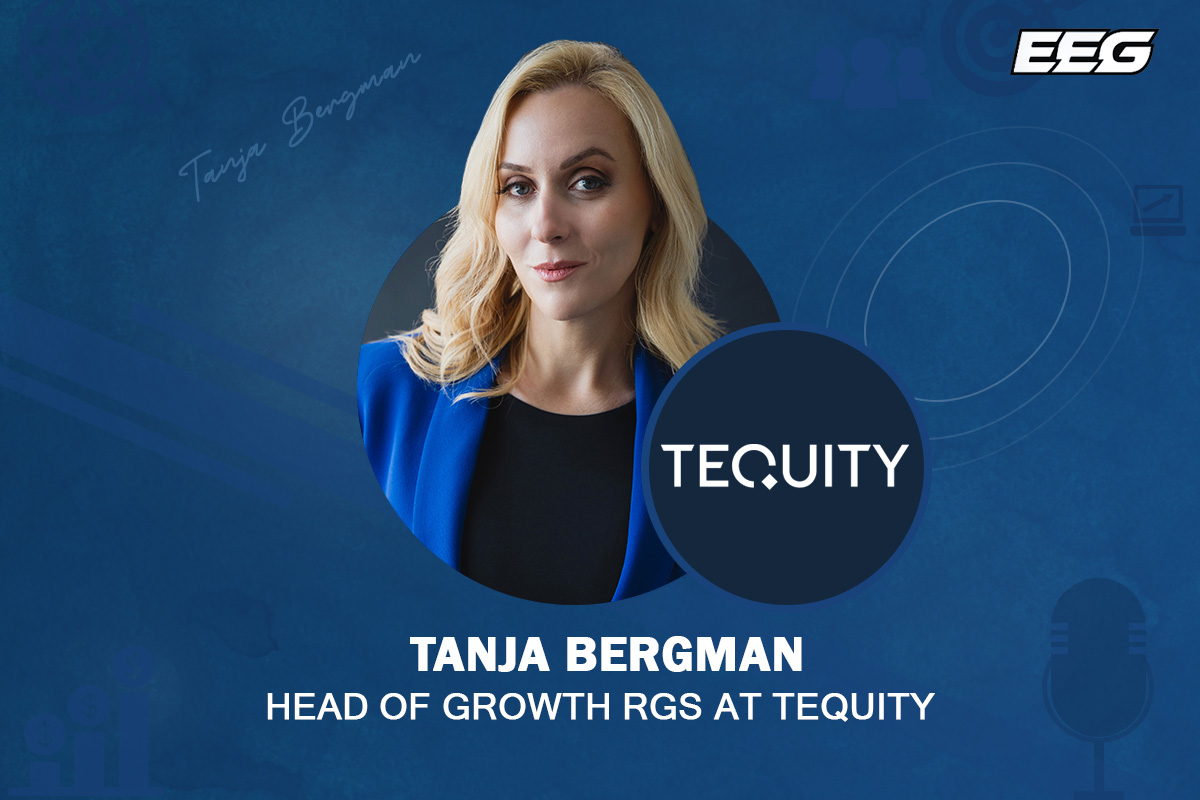
Following the announcement of its new publishing vertical and the successful debut of Royal Drop, we sat down with Tanja Bergman, Head of Growth RGS at Tequity, to discuss how this new arm is set to dismantle technical barriers for ambitious studios and why scalability is the new frontier for the ‘Burst Games’ genre.
Tequity has just officially launched its Publishing vertical. What was the primary catalyst behind this move?
The industry is currently in a fascinating place. There is no shortage of creative talent among studios, but there is a massive technical bottleneck. We have seen so many ambitious studios with incredible concepts – especially those moving beyond traditional slots – who have been getting bogged down in terms of getting those concepts out into the marketplace.
The catalyst for Tequity Publishing was simple. We wanted to break down those technical barriers. By handling the infrastructure, distribution, and compliance frameworks, we allow studios to do what they do best, which is build outstanding games. It’s about speed-to-market without compromising on the quality or the vision of their content.
The launch coincides with the release of Royal Drop. How does this game, and the partnership with Mirror Image Gaming and The Fortune Engine, showcase what Tequity Publishing is all about?
Royal Drop is the perfect proof of concept. It’s a collaboration that highlights three important pillars of modern game delivery. You have Mirror Image Gaming bringing that fresh, video-game-influenced Burst Games energy, The Fortune Engine provide the math tools and templates, and Tequity Publishing offers the global scale and distribution pathway.

It shows that when you remove operational friction, you can create a game-first experience that appeals to a new generation of players who want something more interactive than a standard 5×3 reel.
Tequity Publishing offers two models: RGSaaS and RGS-to-RGS. Can you walk us through the strategic benefits of each?
Flexibility is key, because no two studios are at the same stage of their journey. The RGSaaS model is our full-service offering. It’s designed for studios that want to focus 100% on the creative side. We provide the entire infrastructure and publishing framework and it is essentially a business-in-a-box for game creators.
The RGS-to-RGS model is a more streamlined, tech-first approach for studios that already have their own RGS but lack the distribution muscle. It allows them to plug into our growing operator and aggregator network instantly. Both models are built on the same philosophy: helping studios reach parts of the market they otherwise couldn’t access on their own.
You mentioned reaching new generations of players. How does this vertical specifically empower studios to innovate in ways they couldn’t before?
When a studio is concerned about how they are going to integrate with a multitude of different operators or how to navigate complex jurisdictional requirements, they tend to play it safe. They stick to what they know.
By taking that weight off their shoulders, we give them the opportunity to be brave. Studios like Mirror Image Gaming are pushing the boundaries of modern iGaming, taking influences from the video game world. This is exactly what the new generation of players is looking for. We provide the scalability so that these niche, innovative ideas can achieve mass-market impact.
It’s been a busy period for Tequity, following the success of your Originals series and the iBankroll partnership. How does the Publishing vertical fit into the broader Tequity roadmap for 2026?
It’s all part of becoming the ultimate technology partner for the gaming industry. Whether it’s our streamer-friendly Originals or our Bankroll-as-a-Service offering, the goal is to provide scalable, customisable solutions. Tequity Publishing is the natural evolution of that mission. We aren’t only providing the tools anymore, but also the pathway to the player. Looking ahead, you can expect a series of further launches through our three-way collaborations. We’re proving that the barrier to entry for innovation has never been lower.
Finally, for studios looking to scale quickly, what is your main message to them?
Don’t let technical noise drown out your creative signal. If you have a game concept that breaks the mould, you shouldn’t have to spend years building the distribution architecture to get it seen. That’s what we’re here for. We want to help you launch at a speed and scale that matches your ambition, so that you can make a significant splash in the industry.
The post Scaling innovation through the launch of Tequity Publishing appeared first on Eastern European Gaming | Global iGaming & Tech Intelligence Hub.
BetMGM
Breaking America with BetMGM
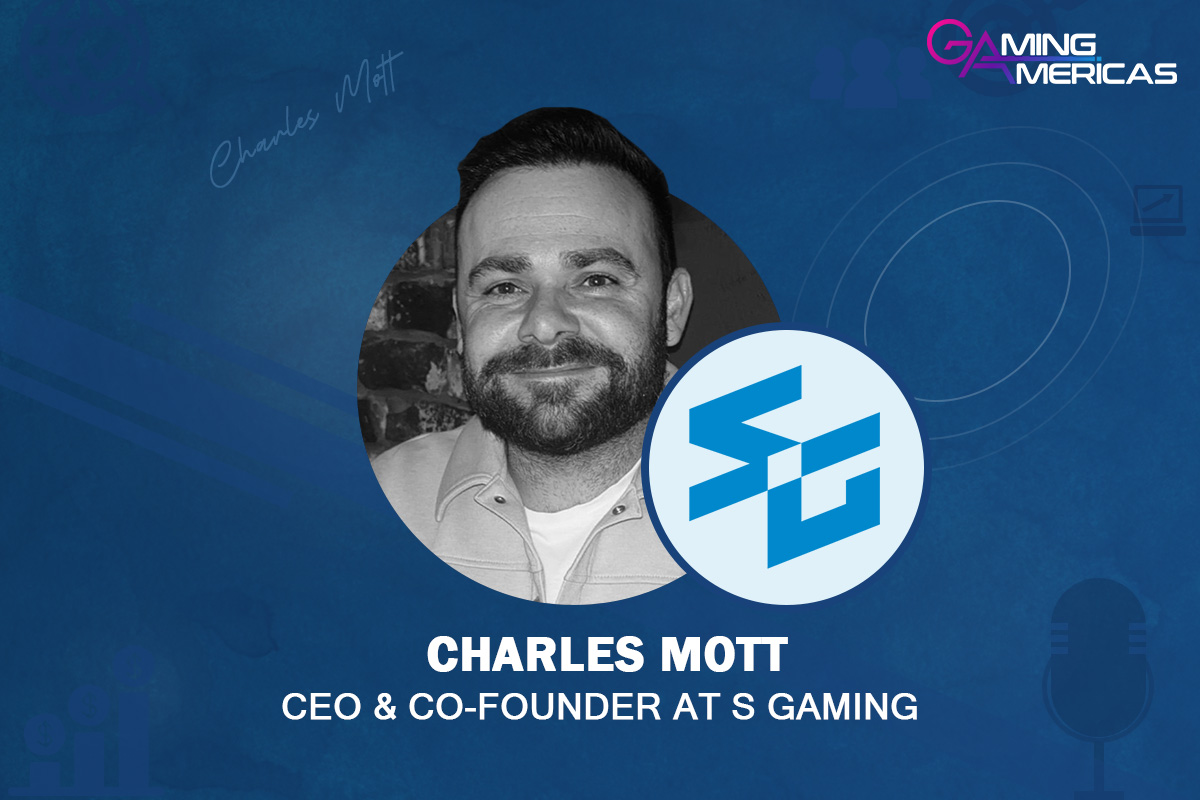
We speak to Charles Mott, CEO & Co-Founder at S Gaming, about the provider’s move into the US market with BetMGM and why more casual gameplay hits the mark with players stateside
Congratulations on your deal with BetMGM in the USA. Why is this such a milestone market launch for S Gaming?
The deal with BetMGM marks our hotly-anticipated launch in the US market, and sees our games go live to players in core regulated states such as New Jersey, Pennsylvania, West Virginia and Michigan. We see huge potential for our content in the North American market, and to make our debut with such a high-calibre operator is a testament to this. The US is still just finding its feet as a regulated online casino market, and our games, with their focus on sustainability and high entertainment, are the perfect fit for audiences who are used to land-based slots and are increasingly moving online. They are simple, easy to understand and play, and ultimately deliver tons of fun over longer playing sessions – just like the slot machines found on the floors of casinos in Las Vegas and beyond.
Just how important was it to go live with a tier-one operator like BetMGM? And how will the deal allow you to quickly build momentum in the US?
It’s mission critical. Going live with BetMGM allows us to build immediate trust with players, tap into a large and loyal playerbase, and simultaneously enter multiple regulated iCasino states at the same time. Now that we are up and running with BetMGM, we are turning our attention to striking partnerships with other operators active in the market. It’s pretty much the same blueprint that we’ve followed in our home market of the UK where we are now live with all but a handful of brands – something we have been able to achieve in a little over two years. We know the US is a slightly different market, but we are confident in our approach to game development and, as we gather more data on how US players interact with our games, will use this feedback loop to guide our product roadmap going forwards so that each title is better than the last and more suited to the preferences of US players.
You mentioned that your games are aimed at more casual players. How does this align with the preferences of US consumers?
If you walk onto the gaming floor of any Las Vegas casino, you’ll see row after row of slot machines. Increasingly, these machines are designed to keep players entertained for longer through gripping gameplay and regular wins. A lot of online slot content delivers high risk/high reward gameplay, where players can quickly clear through their balance as they hunt down big wins – wins that don’t land all that often. In a market where operators care deeply about retention and lifetime value, games that keep players spinning for longer really matter. Our approach to producing sustainable, fun games for players in the UK and Europe has allowed us to not only stand out but to engage players at scale, and we are confident players in the US, especially those who enjoy land-based slotting, will also be drawn to them at scale.
Has launching in the US been a major undertaking for S Gaming, or did it prove to be plain sailing for the most part?
When planning our move into the US market we identified two routes. We have our own remote game server, so we could build on that, secure licences in each state we wanted to enter, and then deploy our content directly with operators. The other option would be to work with a third-party RGS provider that already has the licences and integrations we needed. While the first option might sound like the best, in reality, especially for a smaller studio, the cost of and resources required for securing individual state licences can be prohibitive. So instead, we joined forces with Gaming Realms as they have the cutting-edge RGS and licences (in both the US and Europe) we were looking for. This means we simply need to build a US version of each game on the Gaming Realms RGS and can then deploy content with the wide range of operator partners they are connected with in regulated iCasino states across the US.
Tell us more about the initial run of games you’ve launched with BetMGM.
We’ve launched the partnership with Barnyard Bash Chicken Chase which will be followed by Triple 7 Jackpot in February and Cat and Mouse Collect in March – with one new game a month to follow as we build out our US portfolio. If players were to try just one of our games, it would be Barnyard Bash Chicken Chase. It gets players clucking as they spin the reels, collect Eggs and add them to the growing Nest – the more eggs collected, the bigger the Nest Egg becomes. Not only that, Eggs can randomly activate the matching colour-coded Nest Egg and award entry to the Chicken Trail feature, drop Egg-stra Free Spins or lay an Instant Prize.
But once they’ve tried it, they’ll definitely want to take Triple 7 Jackpot for a spin. This classic slot is dripping in neon action – the Triple 7 feature is always on screen but is locked until a spin lands three Bonus 777 symbols. This unlocks the feature with on spin awarded, giving players a shot at the 500x Jackpot prize. Free Spins are also up for grabs with seven Free Games awarded when three Scatters land in the base game.
Finally, Cat and Mouse Collect is a playful, feature-rich slot built around a simple but engaging Collect mechanic. Players pin the reels, collect up the cheeses and feed the hungry mice until they’re fit to burst. Green plates will serve up an instant prize, Blue will start the wild and wacky Cheese Chase and Red dishes out some feisty Free Spins. With regular feature triggers and plenty of on-reel interaction, it’s designed to keep players engaged from spin to spin without relying on extreme volatility.
What does success in the US look like for S Gaming over the next 12-18 months?
Success for us isn’t about one big hit, it’s about becoming a trusted, widely-distributed supplier in regulated iCasino states. Over the next year we want to significantly expand beyond BetMGM, roll out a steady pipeline of US-optimised titles and build the kind of player data and
operator relationships that let us grow sustainably. If players in New Jersey, Pennsylvania and Michigan are regularly choosing S Gaming titles as part of their core rotation, then we’ll know we’re really breaking into the market.
The post Breaking America with BetMGM appeared first on Americas iGaming & Sports Betting News.
3 Fortune Trees.
Kendoo interview: Can stability be the new innovation?
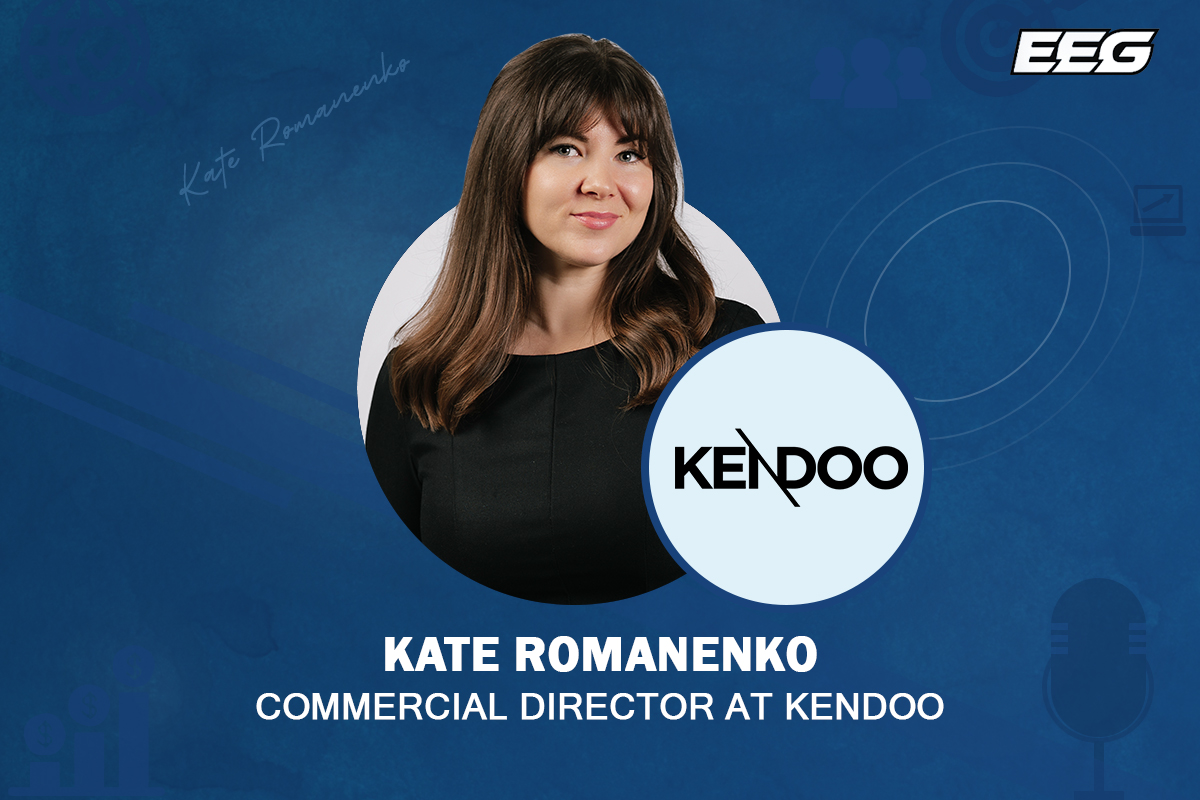
What innovation consists of within the slots industry is often debated. While there are often calls for more groundbreaking features to be introduced, the reality is that the progression of trusted and popular concepts is what drives the industry forward with new releases.
We caught up with the Kendoo’s Commercial Director, Kate Romanenko, to understand more on how long-term retention is often underpinned by controlled evolution of proven concepts, as shown in the company’s success over the past year.
In an industry driven by novelty, why do you think long-term consistency is becoming just as valuable as innovation?
In the competitive iGaming market, everyone is obsessed with “what’s next,” long-term consistency has become a signal of trust. Operators are increasingly cautious: they want games that perform predictably over time, not just those who grow only on launch. Controlled evolution, like we showed with 3 Pots and 4 Pots games, such as 3 Fortune Trees, 3 Gates of Pyramid, 4 Egypt Scarabs etc., proves that you can refresh mechanics and visuals without breaking what already works. Innovation still matters, but when it’s backed by performance data and retention, it becomes scalable, sustainable value rather than short-lived hype.
How does Kendoo ensure technical and gameplay stability across its growing portfolio, especially as it scales into new markets?
At Kendoo, we build on a select set of well-tested core mechanics, evolving them thoughtfully rather than introducing unproven systems. Each game reflects our research, experience, and deep understanding of player needs. This approach lets us expand into new markets without compromising reliability, delivering operators consistent performance and players a smooth, familiar experience they can trust.
What role does reliability play in building strong partnerships with aggregators and platforms?
Reliability is the foundation of trust with aggregators and platforms. When integrations are stable, launches are predictable, and games perform consistently, partners can scale with confidence. For Kendoo, reliability reduces operational friction on their side, fewer incidents, faster rollouts, and clearer performance expectations. Over time, this turns a supplier relationship into a long-term partnership, where growth is planned together rather than driven by constant risk around new releases.
Do you think players are beginning to value dependable, well-balanced games over constant experimentation?
Players enjoy novelty, but they return to games that feel fair, familiar, and well-balanced. Constant experimentation can create friction, while dependable mechanics build confidence and habit. That’s why evolved formats with proven performance tend to retain better: players know what to expect, and that reliability turns curiosity into long-term engagement. For example, taking mechanics like Pots, which originated in land-based casinos, and successfully adapting them for online play.
Can you point to a Kendoo title that’s become a steady performer over time and what that tells you about what players really value?
A clear example is 3 Fortune Trees. Since launch, it has consistently driven strong retention and engagement across markets, with an average of 500 bets per player, which is excellent. The game demonstrates that players value Pots mechanics and reliable, well-balanced gameplay over flashy, one-off features. Its engaging mechanics, popular theme, and premium art and animation all come together to create a game that players love to play.
The post Kendoo interview: Can stability be the new innovation? appeared first on Eastern European Gaming | Global iGaming & Tech Intelligence Hub.
-

 Book of Sobek5 days ago
Book of Sobek5 days agoHölle Games Releases Book of Sobek
-

 Africa5 days ago
Africa5 days agoDive Into a Different Kind of Love This February with Springbok Casino’s ‘Whalentines Month’ and Claim 25 Free Spins
-

 ACMA5 days ago
ACMA5 days agoACMA: Six Wagering Providers Breach Gambling Self-Exclusion Rules
-

 Australia5 days ago
Australia5 days agoFinalists Announced for Inaugural Regulating the Game Global Awards Following Strong Global Engagement
-

 Danske Spil5 days ago
Danske Spil5 days agoS Gaming lands in Denmark with Danske Spil
-

 Latest News5 days ago
Latest News5 days agoThunderkick Unveils Pan’s Arcadia, a Utopian Wilderness
-

 Latest News4 days ago
Latest News4 days agoHow Traffy Cut FTD Cost in Half and Scaled Betting in Tanzania for Africa Bet Partners via Moloco Ads
-

 Compliance Updates5 days ago
Compliance Updates5 days agoUKGC Announces New Gaming Machine Rules





